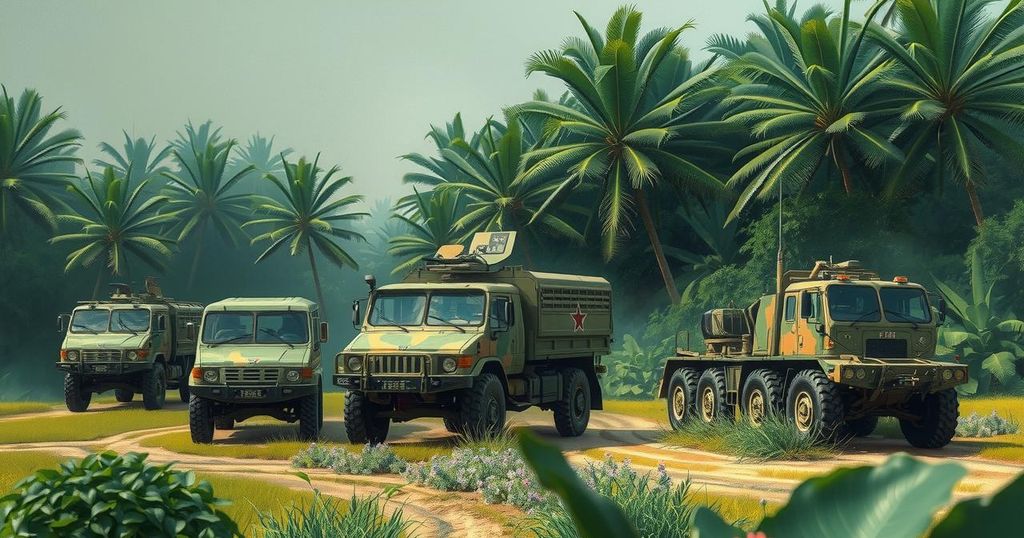Uganda has sent military support to South Sudan to protect President Kiir’s government as fears of civil war rise. The region faces escalating tensions and violence, particularly between Kiir’s forces and Machar’s allies. The deployment highlights the challenges in achieving political stability while the U.S. and U.N. voice concerns over the ongoing conflict and the need for swift reforms in the country.
Uganda has deployed troops to South Sudan to ensure the protection of President Salva Kiir’s government amid escalating tensions that threaten civil war. The deployment, as confirmed by Maj. Gen. Felix Kulayigye of the Ugandan military, aims to support South Sudan against a potential rebel offensive and follows Ugandan President Yoweri Museveni’s historical alliance with Kiir.
This military action highlights the increasing instability in South Sudan, which has faced persistent violence and political challenges since gaining independence in 2011. Recently, the U.S. has ordered nonemergency personnel to evacuate from Juba, while the U.N. cautions that the situation could regress dramatically, undoing years of progress made in the region.
Tensions escalated in northern South Sudan with conflicts involving government forces and the White Army militia, allied with Kiir’s rival Machar. A recent incident resulted in multiple fatalities, including a South Sudanese general, as a U.N. helicopter was attacked during a troop evacuation. This violent episode coincided with increasing military activity surrounding Machar’s residence in Juba, as government forces detained several of his supporters.
Kiir and Machar’s fraught relationship continues to undermine efforts for lasting peace. Kiir’s removal of officials loyal to Machar has intensified tensions, prompting Machar to warn that unilateral decisions could jeopardize the fragile peace agreement. In response to escalating violence, Kiir has assured the public that his government remains committed to maintaining peace amidst the ongoing crisis.
The civil war that erupted in South Sudan in 2013 stemmed from deep-seated ethnic rivalries between Kiir’s Dinka tribe and Machar’s Nuer tribe. Despite a peace agreement in 2018 and Machar’s return to prominence as vice president, significant obstacles remain in establishing stability. Both leaders face mounting pressure from international stakeholders to reinvigorate the peace process and expedite electoral preparations, yet failure to unify military command remains a significant hurdle to reform.
The deployment of Ugandan special forces to South Sudan underscores the volatile relationship between President Salva Kiir and his deputy Riek Machar amid rising tensions that threaten civil war. The historical context of civil conflict, ongoing political rivalry, and international calls for reform illustrate the fragility of South Sudan’s current political landscape. Urgent implementation of the 2018 peace deal is critical for future stability as both leaders navigate their complicated partnership built on a history of distrust.
Original Source: www.newsday.com




